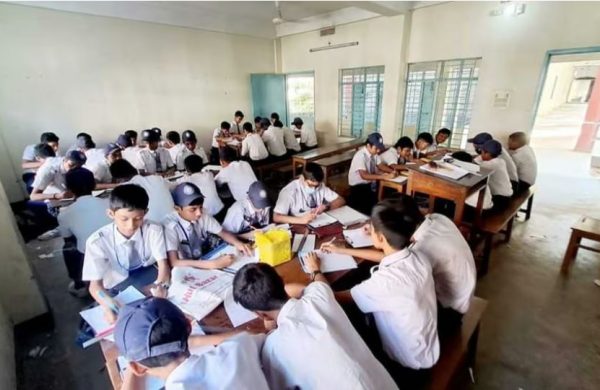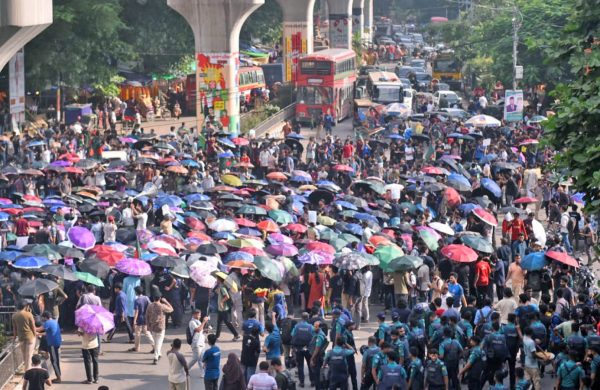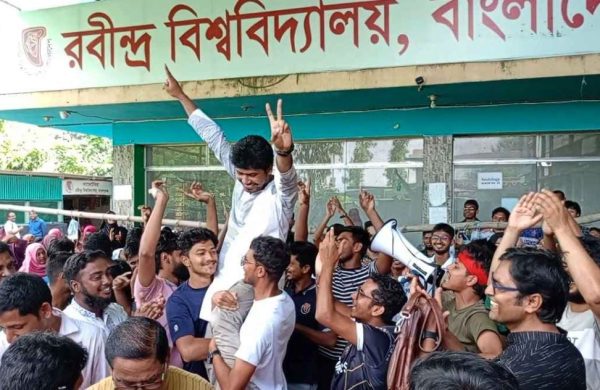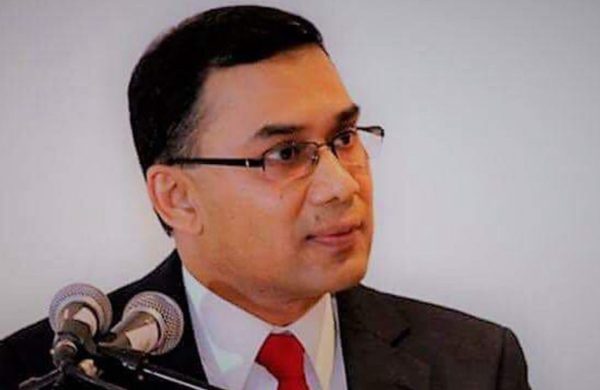How are ninth graders faring under Bangladesh’s new curriculum?
- Update Time : Saturday, January 20, 2024

Online Desk:
Bangladesh’s education system has undergone a major transformation with ninth graders now entering their new classes without being segregated into traditional streams – science, arts, and business studies.
The shift aligns with the new curriculum’s aim to eliminate subject divisions at this level. Consequently, students will no longer have to choose a specific stream upon their admission to colleges.
While some parents have expressed concerns about the new approach, students have indicated a preference for the revised curriculum, which encourages collaborative learning through group assignments.
The National Curriculum and Textbook Board (NCTB) believes that the new system will better equip students to adapt to life’s changes.
However, critics of the new curriculum argue that it may result in reduced focus on science, potentially leaving students less prepared for higher secondary education.
Concerns have also been raised about the abolition of grading and the feasibility of implementing the new curriculum in rural schools, leading to fears of increasing educational inequality.
This has prompted the formation of the ‘Sammilito Shikkha Andolan’ campaign, which opposes these changes.
Education Minister Mohibul Hassan Chowdhoury Nowfel, who played a key role in developing the new curriculum as the former deputy minister, emphasised the necessity of its implementation but indicated the government’s readiness to make adjustments or extensions if required.
The NCTB has defended the curriculum against criticisms, claiming that they are not based on facts.
They contend that the new system will actually enhance science practice among students and that the evaluation process will more accurately reflect their learning progress.
HOW STUDENTS FEEL
Kazi Tahmin Islam Tamim, a ninth-grader at South Point School and College’s Malibagh branch in Dhaka, has spent a week learning under the new curriculum.
He discussed the pros and cons of the new system from his brief first-hand experience.
Tamim appreciates the collaborative aspect of the new system, saying, “In groups, someone else can handle what I can’t. This reduces pressure for everyone.”
However, there is a downside: “The teachers are assigning more group work instead of focusing on teaching the lessons.”
Similarly, Pinky Akter from Baroicha Girls School in Narsingdi’s Belabo finds value in group discussions on various topics. Yet, she feels there’s a missing element. “It would be better if there were more exams to encourage us to study at home.”
WILL SCIENCE TAKE A BACK SEAT?
Rakhal Raha, the convenor of Sammilito Shikkha Andolan, expressed concerns over the new curriculum’s elimination of streams, fearing it may deter students from pursuing science subjects.
“My child is keen on studying science, but this system doesn’t allow it. This means he’ll have to complete Class X with limited knowledge in science and maths. If this continues into higher secondary, his learning will be significantly impacted.”
Countering these concerns, Md Moshiuzzaman, a member of the NCTB, presented data in defence of the new system.
He noted that the revised curriculum is designed to provide a foundational education for all students up to Class X and then bridge them to more specialised higher studies in Classes XI and XII.
According to him, only 19 percent of students pursued science up to Class X.
Consequently, the majority had limited exposure to science subjects. Furthermore, many students who initially chose science later switched to arts or business studies in higher secondary.
This effectively left 90 percent of students with inadequate science education.
“We’ve now broadened the scope of science education to include all students,” he said, adding that the expansion is part of an effort to compensate for the previously observed lack of science education in Classes IX and X.
“In Classes XI and XII, the curriculum is more specialized, with 75 percent of the lessons being stream-based.”
WHAT ABOUT SCHOOLS IN RURAL AREAS?
The implementation of the new curriculum has raised concerns about its impact on rural schools, particularly where teacher training is reportedly inadequate.
Rakhal, a critic of the new system, highlighted a stark disparity in teacher competency. He claimed that only a few thousand out of nearly half a million teachers are equipped to effectively deliver lessons under the new curriculum.
“In a handful of schools, students might thrive with this new system, but in many others, it could lead to substantial harm, thereby exacerbating educational inequality,” he said.
In response, NCTB Chairman Farhadul Islam pointed out that the new curriculum doesn’t require additional materials for implementation and aims to make learning more engaging with existing resources.
“We have received positive feedback from many rural schools where the curriculum is being implemented successfully,” he said.
Farhadul also highlighted the training efforts organised by the government to support the new curriculum.
Subject-wise training has been completed in all schools, and teachers who have undergone this training will train their colleagues, according to him.
“The government is compiling a list of untrained teachers to ensure they too receive the necessary training.”
EVALUATION
Students in Class IX will no longer receive grades or scores. Instead, their academic merit will be evaluated based on classroom performance, and they will be using different textbooks in Class X.
NCTB member Moshiuzzaman elaborated on the new evaluation system. “We have introduced a seven-point grading system. This will help students understand their current academic level and identify areas for improvement.”
Chairman Farhadul Islam added that this grading system would be app-based, making it easier for students to track and assess their academic standing.
However, some parents expressed concerns about these changes.
“I’m worried about my child’s future because they don’t usually discuss their studies with me. Previously, they had private tutors or I assisted them with their studies. I am uncertain about how they will adapt to learning from the new curriculum,” said Noorjahan Islam, a parent of a student at South Point School.
Similarly, a parent from Monipur High School voiced concerns about student motivation in the absence of regular exams.
“No matter how much they learn in the classroom, students tend to lack focus without exams. There should be exams every two months to ensure consistent study habits and attention.”



















